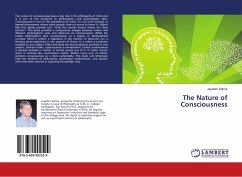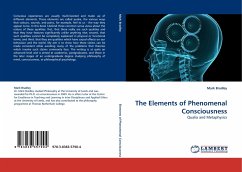The nature of consciousness plays a key role in the philosophy of mind and it is one of the problems to philosophers and psychologists alike. Consciousness is one of the ingredients of mind. It is an inner process or mental phenomena where other people have no access to know it. Gilbert Ryle has rightly pointed out: "Only the wearer knows where the shoe pinches." This book provides a comparative analysis between Indian and Western philosophers' view and discourse on consciousness. While the Indian philosophers take consciousness as a logical or philosophical concept. Mind is neither a substance in the manner of Descartes nor a fleeting sense-experience in the manner of Hume. It is rather a predicate ascribed to one subject. Mind and Body are two predicates ascribed to one subject. Sankara holds, consciousness is omnipresent. Unless consciousness is already involved in matter, it cannot evolve out of it. In other words, there is nothing like unconscious matter. Rather every unit of matter contains consciousness as a mere potentiality. This book will immensely help the students of philosophy, psychology, academicians, and layman who have keen interest in acquiring knowledge only.
Bitte wählen Sie Ihr Anliegen aus.
Rechnungen
Retourenschein anfordern
Bestellstatus
Storno








